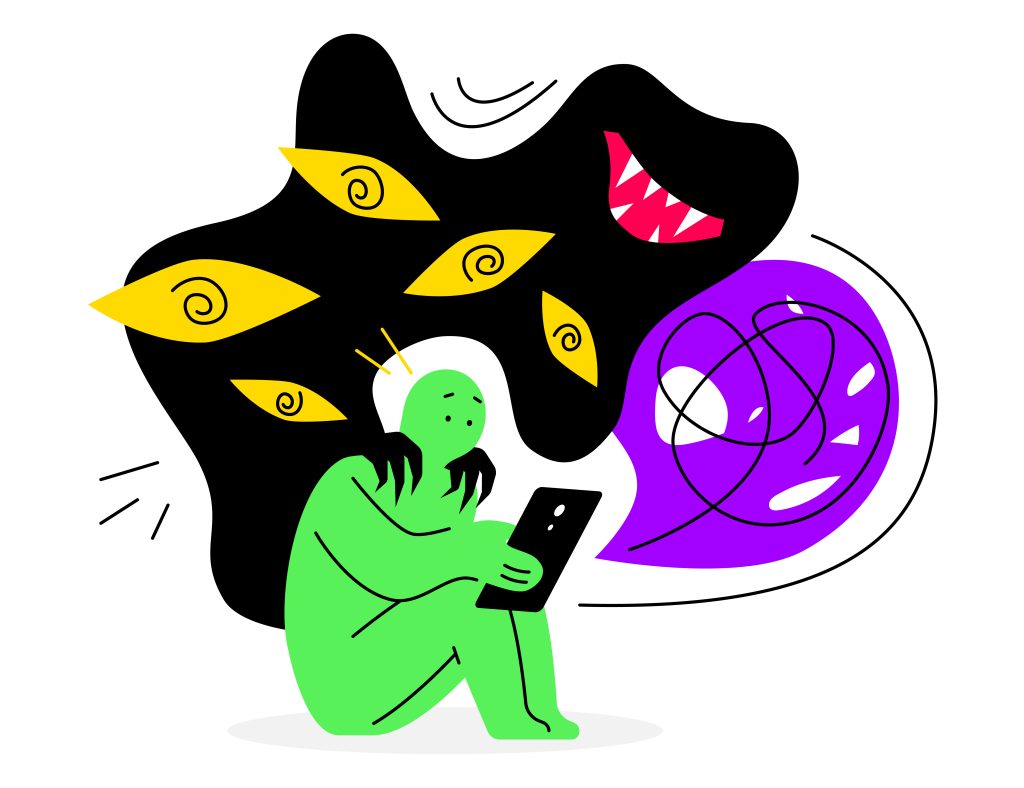Introduction
Social anxiety disorder, also known as social phobia, is a prevalent mental health condition characterized by an intense fear of social situations. Despite its commonality, there are widespread misunderstandings about this disorder. In this article, we will explore the causes, symptoms, and available treatments for social anxiety disorder. Along with Cognitive-Behavioral Therapy (CBT) and Exposure Therapy.
Symptoms of Social Anxiety Disorder:
- Intense Fear of Judgment: Individuals with social anxiety disorder experience overwhelming fear of being judged, criticized, or humiliated in social settings. It often leads to avoidance of such situations.
- Physical Symptoms: Social anxiety can trigger various physical symptoms. Symptoms are rapid heartbeat, sweating, trembling, dry mouth, nausea, dizziness, and muscle tension. These symptoms often occur when facing social situations, intensifying the anxiety.
- Excessive Self-Consciousness: Socially anxious individuals are excessively self-conscious, constantly worrying about how others perceive them. This self-consciousness can lead to embarrassment and heightened awareness of their actions and words.
- Difficulty Speaking: Social anxiety may cause difficulty in speaking coherently, particularly in public or group settings. Individuals may fear being judged for their speech, leading to avoidance of speaking engagements.
- Fear of Authority Figures: Interacting with authority figures can be daunting. Socially anxious individuals fear scrutiny and evaluation, which can hinder effective communication.
- Fear of Eye Contact: Making eye contact can be distressing for individuals with social anxiety. It intensifies feelings of scrutiny and judgment. Avoiding eye contact becomes a coping mechanism to manage anxiety.
- Avoidance Behaviors: Socially anxious individuals often engage in avoidance behaviours. They often hide behind objects or use electronic devices excessively to escape social interactions and manage their anxiety.
Anxiety Symptoms When Triggered:
- Panic Attacks: Social situations can trigger panic attacks, characterized by sudden and intense fear, trembling, chest pain, and a sense of impending doom.
- Cognitive Distortions: Social anxiety can lead to distorted thinking patterns, including catastrophic thinking (expecting the worst possible outcome) and mind reading (assuming others are judging negatively without evidence).
- Depersonalization: Some individuals may experience depersonalization, feeling detached from their own body or reality during social interactions, further increasing anxiety.
- Impaired Concentration: Intense anxiety can impair concentration and focus, making it challenging to engage in conversations or complete tasks in social settings.

Cognitive-Behavioral Therapy (CBT) and Exposure Therapy
Cognitive-Behavioral Therapy (CBT) focuses on identifying and challenging negative thought patterns and irrational beliefs related to social situations. Through structured sessions, individuals learn coping strategies and how to replace negative thoughts with more rational ones, reducing anxiety and improving social interactions.
Exposure Therapy involves gradual and controlled exposure to feared social situations. By facing these situations in a supportive environment, individuals learn that their feared outcomes are unlikely, reducing anxiety over time and building confidence in social settings.
Conclusion
Social anxiety disorder is a challenging condition that significantly impacts individuals’ lives. The physical and cognitive symptoms, coupled with triggered anxiety responses, make social interactions incredibly difficult for those affected. However, with the right support and evidence-based therapies like Cognitive-Behavioral Therapy and Exposure Therapy, individuals can learn to manage their symptoms, face their fears, and regain control over their lives. By promoting awareness and understanding, we can create a more compassionate society where individuals with social anxiety disorder are supported and empowered to thrive.
Ready to begin? Start your online therapy journey today. Book your first session now.




